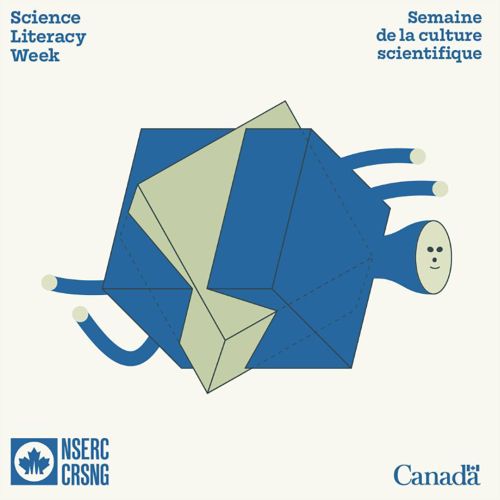News by audience
- Current students (3)
- Future students (2)
- Faculty (3)
- Staff (3)
News archive
Science Literacy Week, happening September 19 to 25, is intended to showcase and explore “stories of the science, discoveries and ingenuity shaping our lives.”
 When asked to think of science and scientific discoveries, visions of labs with beakers and controlled experiments are probably the first thing that come to mind for the average person; activities that can often feel separate from us, even as we live our lives surrounded by innovations that impact us one way or another.
When asked to think of science and scientific discoveries, visions of labs with beakers and controlled experiments are probably the first thing that come to mind for the average person; activities that can often feel separate from us, even as we live our lives surrounded by innovations that impact us one way or another.
In STEM fields, there is increasing awareness of the need to incorporate the voices and lived experiences of the people for whom we are trying to solve problems. While this topic is at the forefront of many discussions in these fields (for example this article looking at how gender impacts knowledge sharing, Gendered Knowledge Accessibility), knowing we should do something is easier than understanding how to do it in a holistic, inclusive and intentional way within a system that does not usually prioritize information gathered outside traditional means.
Grey literature — a term for non-traditional information — encompasses information produced outside of traditional publishing and distribution channels, including sources like diaries, government or organizational reports, and pamphlets.
Librarians, as information professionals, have a long history of searching for and evaluating all different kinds of information, including grey literature. This experience makes them well-placed to contribute to this current conversation.
Librarians help researchers identify appropriate grey literature sources, as well as teach how to search them and document the results. We can also suggest strategies for how to properly evaluate grey literature sources using a variety of tools, like RADAR and AACODS (PDF).
One step our Library has recently taken to contribute to this conversation of how to incorporate the lived experiences of people into our research is the development of a Diversity of Information module, an Open Education Resource (OER) that is part of a series of online tutorials about information literacy for engineering students, that can be easily adapted to other STEM specific contexts to help address this growing need.
The work of libraries and librarians continues to contribute to and lead the innovations happening within evolving information landscapes. The next time you encounter a new innovation consider all the voices that contributed to its development, including librarians!




